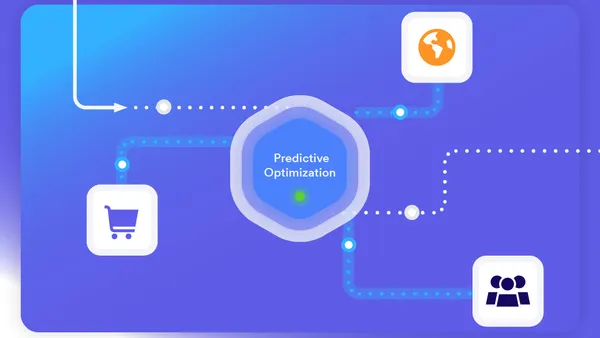Dive Brief:
- With the California Consumer Privacy Act (CCPA) going into effect on Jan. 1, the Digital Advertising Alliance (DAA) released website and app opt-out tools for publishers, brands, agencies and ad-tech firms across industries, according to a press release.
- The tools provide a text link and green icon that, when clicked on, will take users to a publisher page with information and options, including the ability to opt out of the collection and sale of their data to third parties. The new tools are primarily for third parties' data usage, and the DAA urges publishers to develop tools for managing their own first-party data.
- DAA notes that its opt-out tool provides more privacy control than required by CCPA, as users can choose not to have their data sold across all participating third-party firms from a single site or app.
Dive Insight:
The DAA, an independent, not-for-profit organization that focuses on establishing and enforcing privacy best practices, is the latest entity to help marketers prepare for the CCPA as the era of a largely self-regulated digital ad economy comes to a close. Various levels of solutions have debuted by the Interactive Advertising Bureau (IAB), OneTrust Pro and TrustArc, among others.
Many of the trade organizations, like the IAB, have pushed for a single federal data privacy law that would override what they view as a growing patchwork of state-level bills that are difficult to comply with comprehensively and could impede certain marketing practices. Maine and Nevada, for example, are also working through new data privacy legislation akin to the CCPA. Barring the passing of such a federal law, the wide-ranging CCPA will remain a core focus for businesses in 2020.
Marketers have in some ways laid important groundwork for navigating complex data privacy laws thanks to the European Union's General Data Protection Regulation (GDPR), which went into effect in May 2018. As a result, many internet companies with European users have already complied or begun compliance with GDPR and have set up consent mechanisms and more rigorous infrastructure, such as data management or privacy compliance staff.
The CCPA has some key differences with GDPR, and the DAA's cross-platform tools to help marketers meet compliance standards could be welcome to those scrambling before the Jan. 1 deadline. The DAA still cautioned that the CCPA is subject to change and interpretation, and that it's not offering legal advice or a full guarantee of compliance through its new solution.
For marketers, another looming question is how the uptick in data privacy regulations will effect advertising growth. A new forecast by Publicis' Zenith Media agency estimates the growth of programmatic advertising will slow to 22% this year from 35% last year. Zenith suggests challenges like GDPR and CCPA, plus browser changes such as Apple's Intelligent Tracking Prevention, have contributed to the downturn.
However, Zenith also acknowledged that other factors, including the rise of private programmatic marketplaces as a response to ad fraud, will impact the market. Another element affecting growth rates over the next few years will be the general maturation of the online ad market, Zenith said.












